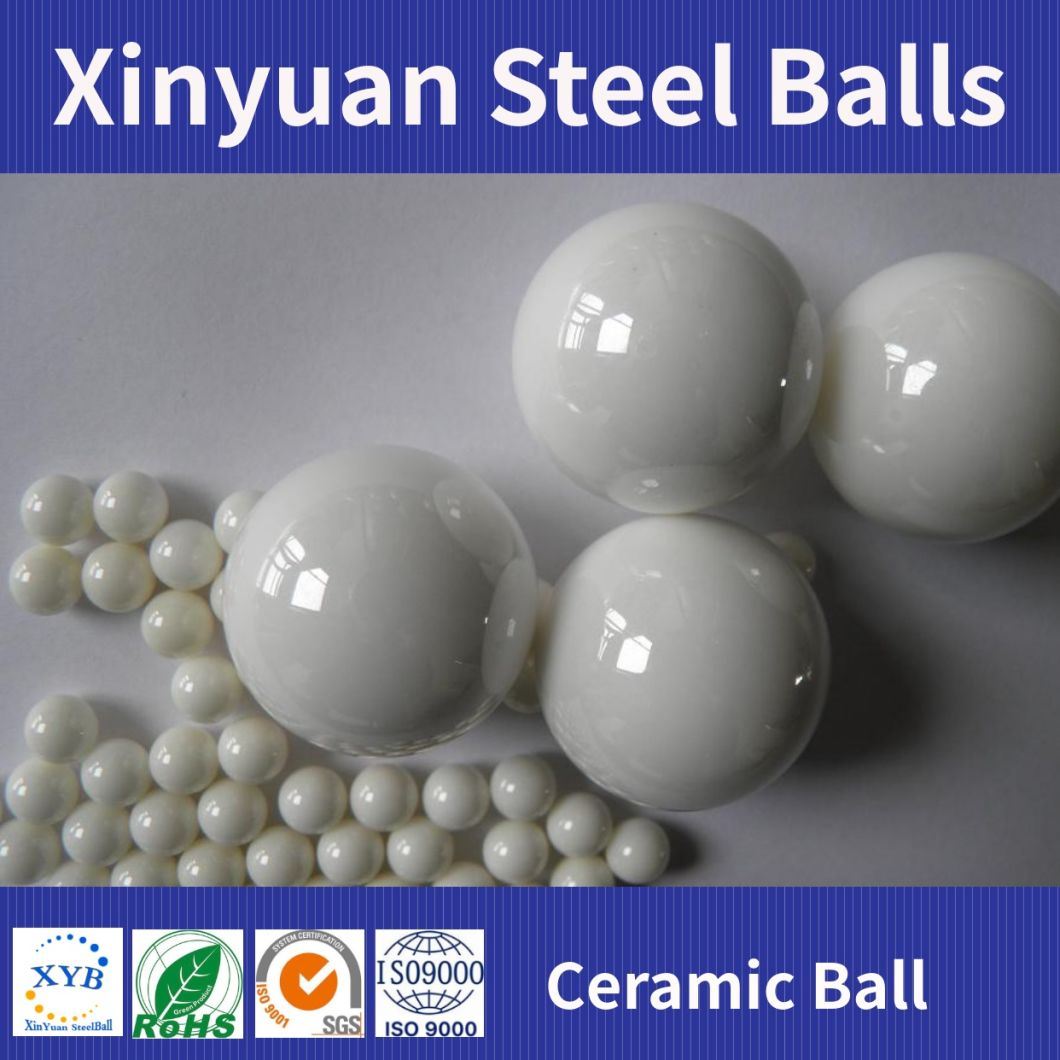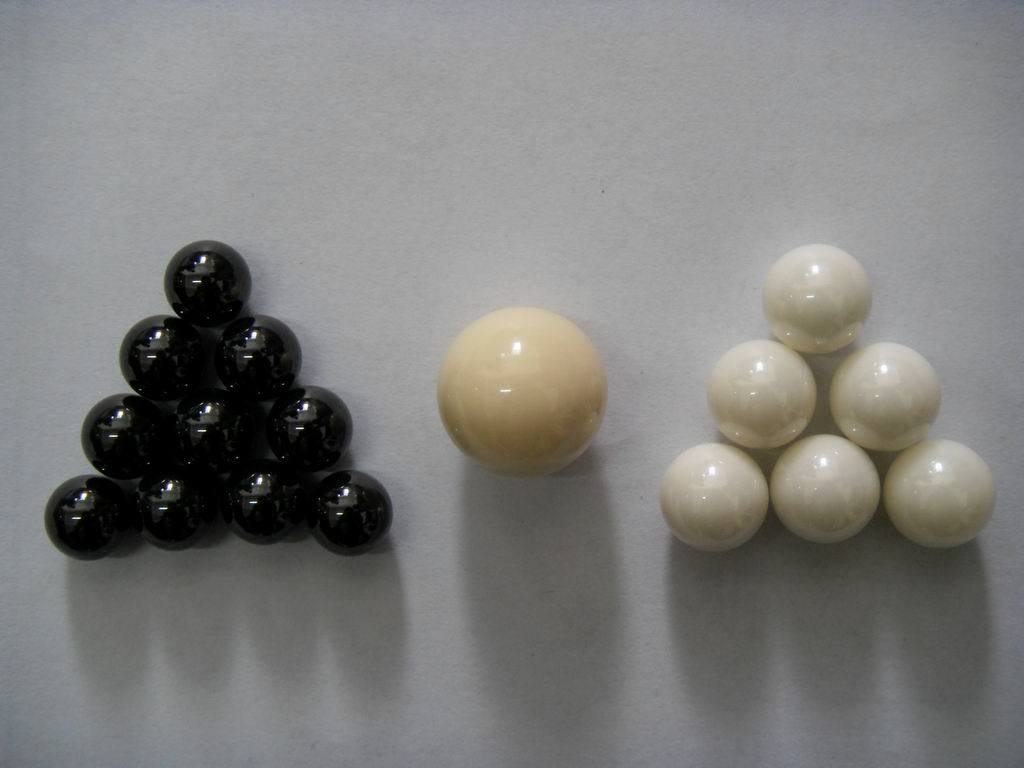Zirconia Oxide Ceramic Balls, 22mm

Product Specifications
Model No.: 22mm
Trademark: OEM
Specification: 3.175mm and above
Origin: Shandong, China
HS Code: 6909110000
Material Specifications
| Alumina Oxide | Zirconia Oxide | Silicon Nitride | |
|---|---|---|---|
| Composition | 99.5% Al₂O₃ / 0.5% other | 97% ZrO₂ / 3% MgO | 87% Si₃N₄ / 13% other |
| Hardness | 1700 Hv | 80 - 84 Ra | 1400 - 1700 Hv |
| Ultimate Tensile Strength | 31,000 psi | 60,000 psi | - |
| Ultimate Compressive Strength | >300,000 psi | 285,000 psi | >570,000 psi |
| Modulus of Elasticity | 53 x10ⶠpsi | 29 x10ⶠpsi | 44-45 x10ⶠpsi |
| Maximum Working Temperature | 1400°C | 2400°C | 1000°C |
| Corrosion Resistance | Inert except for hydrofluoric and hot concentrated sulfuric acids. | Inert to most substances, not recommended for environments with hydrochloric or strong alkaline solutions. | Inert to most substances. |
Description
These ceramic balls are available in three main types: Alumina Oxide, Zirconia Oxide, and Silicon Nitride. Compared to traditional steel balls, they offer a range of benefits that make them ideal for high-performance applications. They are 40% lighter than steel, have a 29% lower coefficient of thermal expansion (which helps maintain their shape under temperature changes), and are 150% harder, making them more durable and efficient.Key Benefits
Ceramic balls are known for their lightweight, high hardness, and toughness. Their low mass makes them particularly suitable for high-speed bearing applications such as machine tool spindles and vacuum pumps. The reduced friction due to their hardness leads to increased energy efficiency, and in some cases, these ceramic balls can last up to 100 times longer than steel ones. Additionally, they are chemically inert, offering excellent resistance to corrosion and making them ideal for use in harsh environments.Common Applications
Zirconia oxide ceramic balls are widely used in the automotive and aerospace industries due to their durability and light weight. For example, they are often found in aircraft braking systems. These balls are also commonly used in various mechanical components where traditional metal balls were previously used, such as aerosol cans, joints, slides (like car seats and safety restraints), castors, ball transfer units, quick disconnect couplings, and fasteners.
Printer Spare Parts,Pet Film Heat Transfer,Pet Film For Heat Transfer Printing,Pet Printing Film
Onetex , https://www.onetexprinting.com